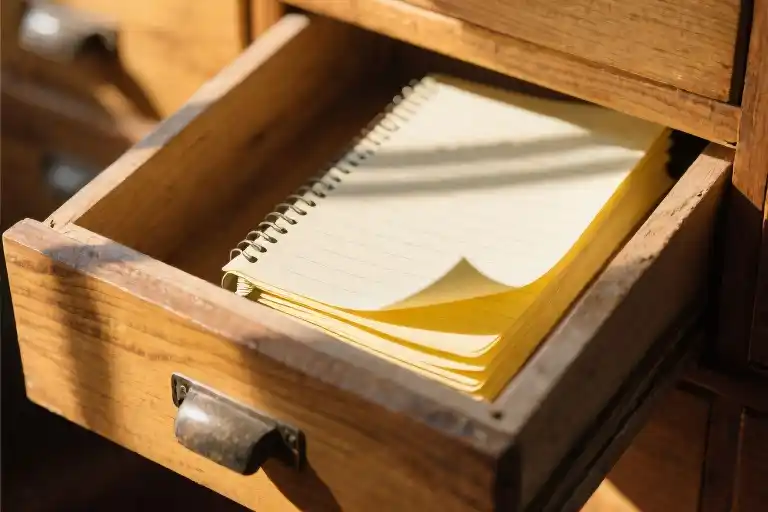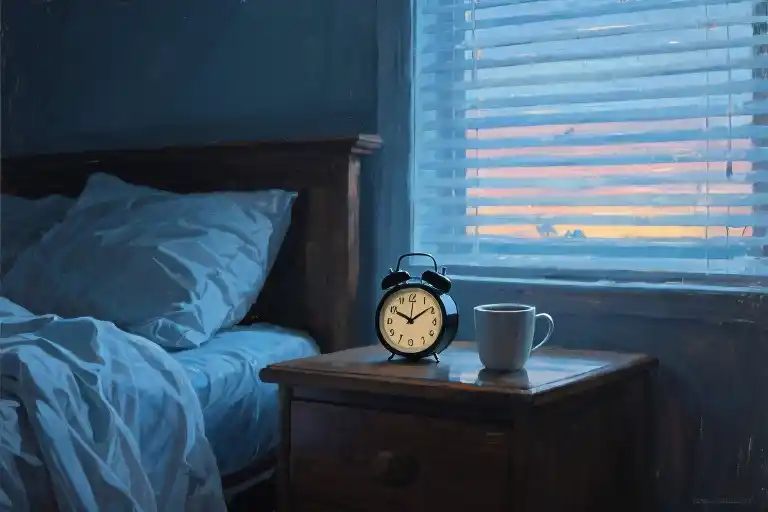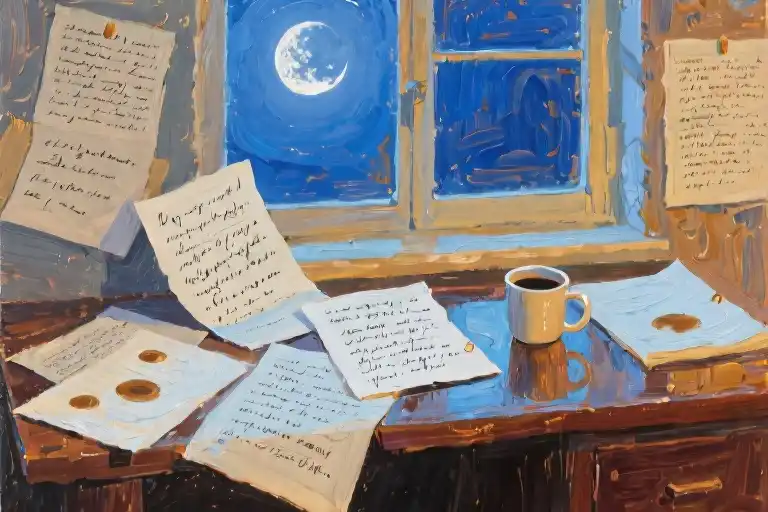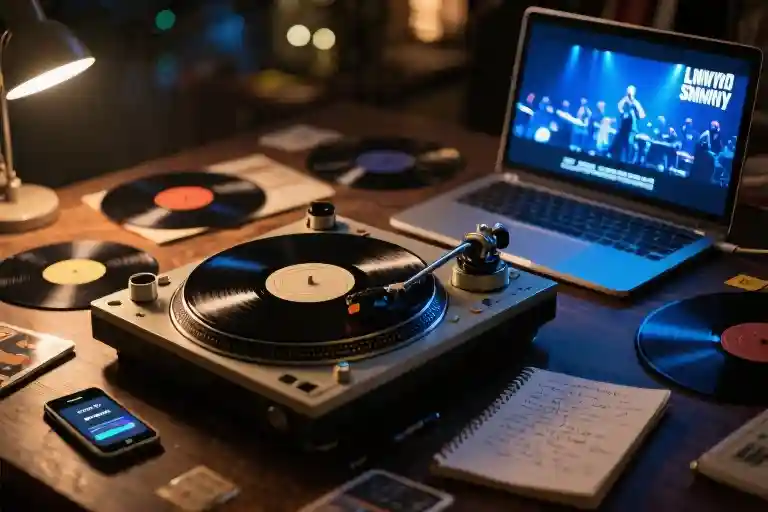The afternoon light slants across the floorboards as I sort through an old oak dresser—the kind with stubborn drawers that stick in summer humidity. Between faded concert tickets and a broken watch, my fingers brush against a sheet of notebook paper, its edges yellowed like autumn leaves. Unfolding it reveals a child’s handwriting listing improbable dreams: “1. Astronaut 2. Dolphin trainer 3. Write a book about talking trees…”
“Joy, once effortless…” The phrase surfaces unbidden as I trace the pencil smudges where erasers had worked too hard. Somewhere between that hopeful child and this version of me—the one who calculates grocery budgets and saves vacation days for parent-teacher conferences—happiness shifted from a constant companion to something requiring meticulous cultivation. Like houseplants that wither despite weekly watering, joy now demands more than mere existence to thrive.
When exactly did laughter stop being the default setting? Was it the year we traded treehouse blueprints for mortgage paperwork, or when “someday” became code for “never” in our personal lexicons? The dresser drawer creaks as I push it shut, but not completely. A sliver of space remains, wide enough for daylight to seep through—or perhaps, for dreams to slip out.
Three keywords linger in the dust motes:
- Lost happiness adulthood—that creeping realization that delight requires intentionality
- Dreams vs responsibility—the eternal tug-of-war between stability and passion
- Nostalgia childhood—the bittersweet ache for simpler definitions of success
This isn’t just my story. It’s ours. The generation who learned to fold aspirations into tidy squares, who discovered that crossing borders (whether geographic or emotional) often means leaving fragments of ourselves behind. That dresser exists in every home—its contents varying only in details: a ballet slipper tucked beneath tax documents, a linguistics degree repurposed as a coaster, a guitar pick glued to a keychain after the band broke up.
The drawer sticks again when I try reopening it. Funny how the things we compartmentalize fight hardest against being retrieved.
The Folded Dreams
The drawer sticks slightly as I pull it open, releasing a faint scent of cedar and forgotten intentions. Inside, a manila folder lies beneath stacks of tax documents and appliance warranties, its edges softened by years of undisturbed stillness. My fingers trace the label—”Someday”—written in the looping cursive of my twenty-three-year-old self, the ink now fading like the urgency of those dreams.
We all have these drawers. The ones where we tuck away the versions of ourselves that didn’t fit into the spreadsheet of adult life. The poetry collection manuscript folded neatly beside a rejection letter. The sketchbook of fashion designs pressed flat under college textbooks. The business plan for that café with the lavender lattes, now just a coffee stain on page seven.
For those of us who crossed oceans, the artifacts carry extra weight. My “someday” folder contains scraps of paper in two languages—the passionate declarations in my mother tongue’s swirling characters, followed by the more pragmatic English notes: “research visa requirements,” “compare health insurance plans.” The transition between them marks the moment when dreams became projects, when wonder calcified into logistics.
Dust motes dance in the afternoon light as I lift out a single sheet—a handwritten list titled “30 Before 30” in the hybrid script of someone who hadn’t yet decided which culture would claim her future. Item #7 catches my throat: “Learn to flamenco dance in Barcelona.” Below it, a post-it from five years later reads: “Reschedule Spain trip after Q3 audit.” The sticky note’s adhesive has long since surrendered, just as I’d surrendered that dream to the relentless tide of deliverables and deadlines.
What’s most startling isn’t the abandonment of these aspirations, but the clinical efficiency with which we archive them. We don’t rage against the dying of our light; we alphabetize it. The guitar picks get sorted with office supplies. The acting headshots become bookmarkers. The language of our childhood—once vibrant enough to craft love poems—gets reduced to grocery lists for specialty import stores.
Yet sometimes, when the house settles into silence, I hear whispers from these drawers. The rustle of untouched ballet slippers. The crinkle of a saved restaurant review for that Parisian bistro. The almost inaudible sigh of a passport with too many business stamps and too few adventure visas.
Your hand hesitates now, doesn’t it? That slight pause before opening your own mental filing cabinet. Because you know exactly which dreams you folded with military precision, which passions you labeled “maybe later” like some distant station on life’s commuter rail. The real question isn’t whether you have such a drawer—we all do—but whether you’ve forgotten the combination to the lock you placed on it.
When was the last time your fingers brushed against those tucked-away hopes? And more importantly, what would happen if you stopped treating them like seasonal clothing, and started wearing them today?
The Weight of Crossing Borders
There comes a moment when we all become statisticians of our own lives. Studies show nearly 75% of adults report feeling crushed under the weight of responsibilities, that quiet erosion where dreams become compartmentalized into mental file cabinets labeled “for later.” The paradox stings sharper for those who’ve crossed borders – physically or metaphorically. We board planes with suitcases precisely measured to airline regulations, yet no baggage allowance exists for the childhood streets we leave behind.
I still remember the exact cadence of my hometown’s afternoon hustle – the bicycle bells ringing through narrow alleys, the fruit vendor’s call bouncing off pastel-colored walls. That symphony lives in my memory with more vividness than yesterday’s boardroom meeting. Contrast this with the sterile silence of international departure gates, where people clutch boarding passes like permission slips to reinvent themselves. The airport announcements echo in three languages, none of which sound like home.
Immigrant identity crisis manifests in peculiar ways. You catch yourself measuring distances not in miles but in emotional currency – “three time zones away from mother’s laughter,” “five years since I last dreamt in my native tongue.” The very privilege of mobility becomes its own kind of weight. We trade spontaneous joy for the careful calculus of adulting: visa renewals, retirement contributions, school districts. The childhood language we spoke so effortlessly now comes out in hesitant bursts during midnight phone calls, like a radio tuning in and out of frequency.
Ten years pass in the blink of an eye. That half-empty suitcase you originally packed with such hope now bulges with practicalities – mortgage documents where poetry notebooks used to be, baby photos replacing concert tickets. The dreams we carefully folded between layers of clothing have somehow evaporated during transit. What remains is the peculiar ache of nostalgia for childhood, not for any specific place, but for the lightness of being we didn’t realize we possessed until it was gone.
Yet here’s the quiet rebellion no one mentions: in the midst of this crossing, we’ve unknowingly become cartographers of a new emotional landscape. The same hands that sign insurance papers can still trace the contours of childhood homes on napkins. The mouth that negotiates contracts still remembers the exact inflection for “grandma’s apple pie” in a language rarely spoken anymore. Perhaps responsibility hasn’t erased our dreams, but rather woven them into something more complex – like a tapestry where the threads of duty and desire create unexpected patterns.
Next time you’re waiting at another anonymous departure gate, notice how your fingers still tap out childhood rhymes on your knee. Observe how the scent of certain spices can collapse time and geography in an instant. The weight we carry isn’t just what we’ve lost, but what we’ve gained – the bittersweet wisdom that comes from having loved enough places and people to feel torn between them. Your suitcase may not have room for those early dreams anymore, but look closer – their outlines remain pressed into the lining, like shadows of wings.
If Life Had a Reset Button
We’ve all had those quiet moments—maybe during a sleepless night or while waiting for the morning coffee to brew—when we let our minds wander down the road not taken. That crumpled acceptance letter from art school at the bottom of your filing cabinet. The half-written novel buried under spreadsheets. The guitar picks collecting dust beside your corporate ID badge.
What if you’d said yes?
There’s a particular ache that comes with scrolling through alumni pages of that university you almost attended, or watching documentaries about chefs when you abandoned culinary school for accounting. The parallel lives shimmer just beyond reach—the painter you could’ve been, the cafes where your poetry might’ve been read aloud, the overseas adventures sacrificed for dental insurance and 401(k) contributions.
We tell ourselves it was the responsible choice. The numbers added up better. The career path looked straighter. The immigrant parents who crossed oceans wanted safety for their children above all else. Stability over spontaneity. Security over soul-searching.
Yet here’s the quiet rebellion our hearts keep staging:
- Your fingers still trace the spines of philosophy books you “don’t have time for”
- Your Spotify wrapped betrays how often you replay songs from that band you almost joined
- Google Maps knows you’ve street-viewed the Parisian alleyway where your study abroad program would’ve been
Perhaps what we mourn isn’t the unconquered dream itself, but the version of ourselves that still believed in possibility without caveats. Before we learned to measure joy against practicality. Before we internalized that some doors only open if you’re willing to lose everything else.
The cruelest lie adulthood tells is that reinvention has an expiration date. That the dancer’s body forgets by thirty. That new languages stick less after forty. That starting over is selfish when others depend on you. But watch closely—life keeps slipping us blank pages disguised as mundane moments:
- The community college catalog that arrives unbidden in your mailbox
- The unexpected afternoon when both kids are at playdates
- The layoff notice that could be a prison break in disguise
We imagine reset buttons as dramatic devices—flashing neon signs offering total life rewrites. Yet most second chances arrive whispering, dressed in ordinary Tuesdays. The real question isn’t whether we could start over, but whether we’d recognize the invitation when it comes.
Maybe courage isn’t what we lack. Maybe it’s simply that no one prepared us for how ordinary pivotal moments look—how choosing yourself rarely involves fanfare, just quiet acts of defiance against the narratives we’ve accepted. That art school application still exists online. That open mic night happens every Thursday. That language app waits patiently on your phone.
The tragedy isn’t that we folded our dreams too neatly—it’s that we keep treating them as finished origami when they’re really just paper waiting to be unfolded again.
The Anchor and the Chain
The guitar case creaked open at midnight, releasing a scent of rosewood and forgotten promises. Inside lay not just an instrument, but the ghost of a younger man who once believed his fingers could shape destiny. I found my father like this often – tracing the fretboard with calloused hands that now balanced spreadsheets instead of chords, his wedding band glinting against the worn pickguard.
Immigrant families collect these silent rituals. We become archivists of abandoned selves, preserving dreams in attics and hard drives like cultural heirlooms. My mother’s medical degree gathering dust behind insurance documents. My aunt’s poetry notebooks shelved beside grocery lists in two languages. These aren’t failures, but sacrifices folded into our family lore with the same care as holiday linens passed through generations.
Yet sometimes, when my daughter practices piano scales after homework, I notice my father’s foot tapping rhythms his body can no longer play. The chain of responsibility that anchors us also transmits these tremors of what might have been. We become both the mooring and the restrained – holding steady as waves of nostalgia crash against the life we’ve built.
Cultural theorists call it “the immigrant bargain” – trading personal aspirations for our children’s stability. But no academic term captures the weight of watching parents age out of their deferred dreams. The way my father’s “someday” became my college tuition, his guitar case a time capsule I’m afraid to open.
Perhaps this is why second-generation kids oscillate between guilt and rebellion. We inherit not just opportunities, but the emotional debt of sacrifices we never asked for. The unspoken question lingers like a half-remembered melody: When does an anchor become a chain? When does stability become a life sentence?
On bad days, I tally the costs in my therapist’s office. The piano lessons I quit at sixteen to focus on SAT prep. The internship abroad I turned down for family obligations. But on good days, I recognize the hidden gifts – the resilience encoded in my father’s hands, the way he taught me to string new dreams when old ones snapped.
Maybe healing begins when we stop seeing these choices as binary. The guitar needn’t symbolize surrender – it’s proof that beauty persists even in storage. My father’s lullabies still hum in my muscle memory, his abandoned compositions now surfacing in my daughter’s jazz improvisations. Dreams, like family, find ways to evolve.
So I leave the case unlatched now. Some Sundays, we take turns plucking rusty melodies between homework and laundry. Not a reset, but a remix – honoring the anchor while loosening its grip, one imperfect chord at a time.
The Unclosed Drawer
The drawer never quite shuts. No matter how firmly you press it, there remains that stubborn sliver of space—just enough to glimpse the folded edges of what might have been. It’s there when you wake at 3 AM to a sleeping house, when airport announcements echo in a language you understand but don’t feel, when your child asks why you never became that painter/dancer/astronaut from the old notebook.
We spend years perfecting the art of folding dreams—crisp corners aligned, labels facing outward, compartments organized by priority and practicality. Yet the most carefully arranged drawers develop their own quiet rebellion. A postcard from Barcelona peeks between tax documents. Guitar calluses resurface during spreadsheet marathons. The scent of your grandmother’s kitchen clings to business suits dry-cleaned in a foreign city.
If life offered a reset… The thought arrives like a draft through that unsealed gap. Not as grand fantasy, but as the quiet recognition that some choices cast long shadows. What if you’d pursued the art degree instead of the MBA? Stayed in the coastal town instead of chasing the skyline? Kept writing poems in the margins?
Here’s the truth no productivity hack will admit: adulthood isn’t about abandoning dreams, but learning which ones can breathe outside the drawer. That abandoned novel? It taught you to craft compelling emails. The dance training? It lives in your daughter’s Saturday ballet classes. The languages left behind? They emerge when comforting homesick colleagues.
So I won’t ask if you’d rewrite your story. Instead, consider this:
- Which folded dream still hums when you accidentally brush against it?
- What fragment could you unfold—just slightly—this season?
- How might your carefully stored joys nourish someone else’s beginning?
Your turn: Reach for that drawer right now. Not to empty it, but to acknowledge what stirs beneath the neat surfaces. Share one thing that still flutters when the room goes quiet—we’ll keep the light on in this space between what was and what yet could be.





